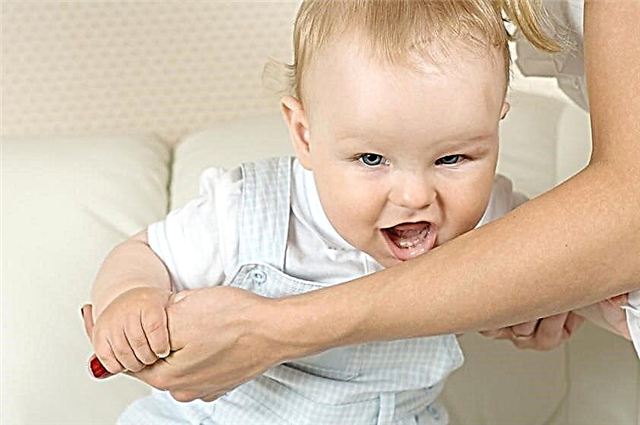For the successful development of the child's psyche, his abilities, it is necessary for the baby to feel confident, not afraid to prove himself, his capabilities, strive for the best, be open and honest. Insecure adults most often grow out of insecure children.

Self-doubt is an underestimated view of one's own capabilities and abilities.
Self-confidence is an important quality for a child, which indicates that he values himself, is responsible for his actions, and is ready to cope with life's problems. The development of confidence in a toddler should start at an early age. This personality trait continues to develop throughout life. Any child can become confident, regardless of gender and age.
It is not immediately possible to see notes of uncertainty in a child; parents do not always manage to recognize a situation when a child already needs help.
People who are constantly experiencing indecision, doubting themselves and their capabilities, feel significant difficulties in life, it is more difficult for them to achieve meaningful success, they constantly try to get approval from the outside, they cannot understand what they want.
This is why it is so important to root out the nascent feelings of insecurity in your child as soon as possible.
How to tell if your child is confident
Observe and think about how the child behaves at home, in kindergarten or school, with peers.
If a child speaks quietly, even if the situation does not require it, often bites his nails, straightens clothes for no apparent reason, licks his lips, then these are small signs of indecision, insecurity and complexes.
Here are some more signs of insecure behavior:
- the child looks away when talking to a person;
- tries to avoid the adult's answer;
- overly distrustful, irritated in the presence of other people;
- often angry with strangers;
- afraid of not coping with the instructions of an adult and does not want to take responsibility;
- afraid of difficulties and always chooses easier things;
- panics before doing new things;
- has a number of fears and even phobias;
- hesitates to meet and communicate with new people;
- has no opinion of its own;
- writes and draws very small, lightly pressing on a pencil;
- sometimes shows aggression and misbehaves for no reason;
- slouching.
If at least some of the listed signs appear in your child, then you should start working on your own mistakes in upbringing and be sure to develop self-confidence in your child.
Often, insecure, shy children can be irritated towards pets and loved ones. Having matured, such children understand that they have not achieved anything in life, demonstrate evil to others, blaming them for all the troubles.
Svetlana Voitenko, child psychologist: “Self-confidence is a very broad concept. Its development is facilitated by a positive vision of the world, self-esteem, sustainable self-esteem, faith in one's own capabilities, etc. Self-confidence is formed, first of all, by parents, proper home education. Of course, relationships with peers, adults and the school atmosphere in general are also important. If your child has problems at school, it is worth talking to the teacher or school psychologist. "
If a child grew up insecure, he may have the following traits:
- isolation;
- lack of communication;
- timidity;
- blind imitation of a confident child;
- difficulty in making contact with strangers;
- low self-esteem;
- lethargy, stubbornness.
Where does uncertainty come from
The most common cause of childhood insecurity is the upbringing and treatment of the child in the family and his immediate environment. Even the most loving parents sometimes make mistakes, believing that they are acting in the best interests of the child. Let's look at the main factors that affect children's determination and confidence.

Parents are insecure people themselves.
The way the baby's parents look at the world and at different situations depends on his own worldview and behavior. If the child is endlessly told: “Better not to take it, and suddenly you will lose”, “And if it doesn’t work out, then what”, “Don’t climb, or it may be worse,” then such standards of thinking become commonplace in the child's understanding. He decides that for his own safety, in order not to look stupid, to avoid losses and punishment, it is better not to take up any business, to avoid responsibility.
Indecision is not inherited, but it can sink very deeply in the subconscious. The kid, projecting the behavior and words of his parents, lowers his self-esteem, considers inaction the best choice.
Therefore, even if you are naturally shy, indecisive people, try not to show these qualities of yours, do not tell the child that he can fail, because he is not strong and smart enough. On the contrary, try to generate initiative in the child, the desire for new things.
If parents are too confident in themselves, consider themselves the most intelligent and skillful, do not tolerate challenging their actions, then the child grows up unable to make independent decisions.
It was noticed that the first-born in the family more often suffer from low self-esteem, have more problems in communicating with others than their younger brothers and sisters. The fact is that when the first child appears in the house, parents experience a lot of anxiety about him. The anxiety of adults about how well they are coping with their parenting responsibilities is transmitted to the child.
Constant criticism, comparison, punishment.
If you constantly criticize a child, instead of praising him, ignore his achievements, condemn the child's choice, do not value his friends, forbid a lot, demand the perfect fulfillment of everything the child undertakes, you will inevitably cultivate in him a feeling of insecurity, fear of taking on any significant business.
By screaming, often punishing the baby, you contribute to his isolation, alienation, kill faith in yourself and good relations between people. Frequent fear, coupled with regular bullying, has the most negative effect on the child's psyche. Comparing him with others, assuring him that there are stronger, smarter, more beautiful, you lower his self-esteem. A child can easily become isolated in his experiences and fears of being a failure, and as a result, stop developing normally as a person, in adulthood, not to arrange a personal life, not to build a career, still considering himself unworthy and incapable.
Realization of your unfulfilled dreams, plans and desires.
Let's say that my mother wanted to become a famous musician all her life, but because of her first love, she abandoned music school and parted with her dream forever, and later with her first love. Now the mother, without realizing it, decided that her child simply needed a musical education, and sent the baby to learn to play, for example, the violin, not taking into account the child's lack of desire and aspiration. Dad in childhood was offended by strong healthy guys, and now, he insists on boxing and martial arts for the child.
When choosing the path of a child in life, think about whether you are projecting your own desires, whether you take into account the abilities, inclinations and aspirations of the baby.
Failures in social life.
Getting into the children's team, first in the kindergarten, then in school, the child learns to be aware of himself as a person, individuality, looking for ways to interact with peers. Therefore, failures and blunders in communication, getting “into the wrong company”, mockery and ridicule of enemies, non-mutual love, etc. are greatly exaggerated by children, causing a sea of experiences. If the family does not help the child get through their problems in time, they can provoke the development of self-doubt.

Non-compliance with standards.
The world around us imposes on us a lot of stereotypes and standards. A sensitive child's psyche is very susceptible to criticism about appearance, nationality, religion. The desire to become like everyone else erases individuality, and the desire to endlessly change the appearance, hide contrived figure flaws, causes a lot of complexes. Without the support of loved ones, these complexes will only grow.
In no case should you insult and humiliate a child, let other people do it. Tell your child more often that you believe in him and love him very much!
How to help your child become more confident
- Don't compare. Comparing your own child with others, not in terms of “oh, how you and Lena are alike”, but, for example, “Lena has been able to do her homework for a long time, but you still won't become independent”, or “it's a shame not to go to the potty, everything can already, even little Petya ”, lead to low self-esteem of the child. Let the baby realize that he is who he is, and you appreciate him that way. You can compare him with himself, yesterday, today. “Today you are just great, yesterday you didn’t succeed, but you tried to keep it up”;
- Appreciate what your child has in him. For the desire to nurture the best qualities and abilities in the child, you may not notice how you miss out on what is given to the child. Your baby has everything ahead, he will still learn everything, but you need to encourage and praise him today, for what he already knows and strives to show you. Praise small victories, because they can be very significant for a child. Show interest in his deeds, successes and failures;
- Trust in the child. Never tell a child that he is stupid, untalented, untalented. Do not drive yourself into such thoughts yourself, because you believe in the success of the child and wish him the best. Tell your child that he is special, show your own confidence in his success;
- Direct your child to the right actions, but carefully. When the child completes a puzzle of 50 elements, offer him a puzzle of 70, then a puzzle of 100. If he is not doing well with the new "step", find a simpler picture of the puzzle;
- Let your child know that mom can be wrong too: “Ehh… what have I done. Now you have to start all over again. " Tell him that you also need support: “Seryozha, now I really need your support. Give me a hug";
- Moderate criticism. Do not overdo it in criticism, always remember that the amount of praise should exceed criticism. Never criticize a child in front of strangers, do not discuss his failures;
- Do not criticize the child himself, but his behavior. For example, say that pinching is bad, not that your son is a bad boy. The second option will dramatically reduce the self-esteem of the offspring, while the first will not affect it;
- The right to vote and choice. Give your child the opportunity to participate in the construction of his life, listen to his opinion, very carefully and imperceptibly adjust his views. Teach your baby to express an opinion, let him sometimes argue with you without destroying your authority;
- Set achievable tasks. Do not overload your child so that he does not have time for himself, his hobbies and friends. It is also not necessary to demand the impossible for the kid. “I will write it down for the section if you pull up 15 times”, “So that I have studied and retell the entire textbook until evening”;
- Encourage communication and friendship. Do not isolate the child from peers, on the contrary, invite his friends to visit, arrange children's parties, let your baby go to such an event;
- Don't compare your child's personality traits with the qualities of children that you have at home;
- Encourage your child to play with younger children... This will give him confidence in his abilities;
- Talk about your feelings. Remember to tell your child that you love and appreciate him and that he and his well-being are important to you. Teach your child to be honest with you, take an interest in his affairs, ask about his mood and feelings. Devote time to your baby, play, exercise, visit entertainment places;
- Don't shout or hit. Such measures of punishment can kill trust, love and self-esteem in a child;
- Encourage your child to take initiative to overcome shyness, notice it and evaluate it in time;
- Be consistent and logical. Control your own negative experiences that may result in illogical behavior. “I did my homework right after school - it’s bad, because I didn’t have time to wash the dishes, I did it later, but I managed to wash it, it’s also bad when now you have time to learn everything”;
- Talk to your child heart to heart, give him the opportunity to speak out, share painful. Ask him if he doesn't say anything himself. Do it tactfully and warmly.
Qualities that characterize a confident child
- Ability to be a leader;
- Adequate perception of criticism;
- The ability to protect oneself and others;
- Emotional stability;
- Artistry.
If you are a truly loving parent, then you will certainly find an approach to your child, correct or avoid mistakes in upbringing and relationships. Your love and desire for the best will defeat your child's insecurities.
- 12 tips for raising a confident child
- 10 tips on how to teach a child to believe in themselves and not be afraid of anything
- How to Raise and Raise an Optimist Child?
- How to properly go through the crisis periods of childhood and adolescence and foster confidence and independence in a child
- Bad advice: how to raise a child insecure
Recommendations: how to raise a successful adult from a child

- If you want to change something in your child, start with yourself. Remember, children copy their parents.
- Praise your child for their successes and don't scold them for their failures.
- Tell your baby what is good, not what not to do.
- Make up with the child short formulas of suggestion such as: "I am the best", "I am successful."
- Learn to replace negative thoughts with positive ones. If the kid does not know how to sing beautifully, tell him: "But you draw perfectly!"
- Tell the baby how much you love him, that you believe in him more often.
- Support all your child's endeavors, even if they seem strange to you.
- Try to always be objective in relation to the different actions of your child.



